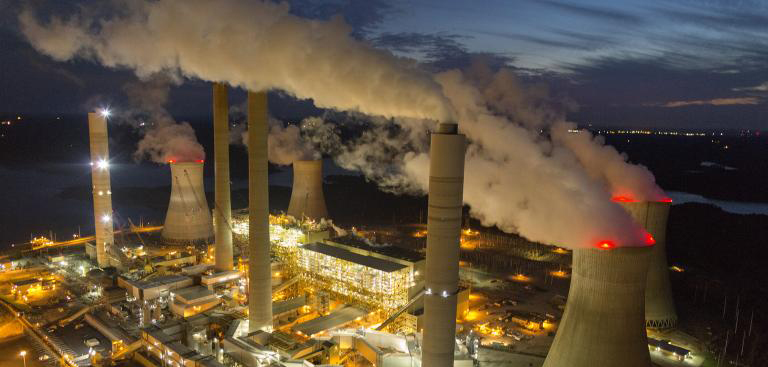On Tuesday, Feb. 9, a divided Supreme Court, granted a “stay” on the implementation of the Environmental Protection Agency’s (EPA) Clean Power Plan (CPP), temporarily blocking the Obama Administration’s efforts to regulate carbon emissions from coal-fired power plants.
The CPP, a massive work of over 1,500 pages, focuses primarily on reducing carbon emissions from existing power plants by 32 percent by 2030 from 2005 levels. Under the CPP, the EPA set emission reduction targets for each state but allowed the states the flexibility to determine how they will attain those targets through state plans but mandatory reductions must begin by 2022. Important to forestry is language included in the CPP that recognizes forest biomass as a viable renewable energy source (see: “Forest Biomass Role in Meeting Carbon Reduction Targets Unclear Under Administration’s New Clean Power Plan”).
Even though CPP implementation has come to a halt, Monte Simpson, government affairs manager with Weyerhaeuser, says members of the forestry community should continue advocating for biomass as a renewable energy source.
“It is important to remember that the Supreme Court’s decision has no effect on the Administration’s other carbon-related initiatives such as the Biomass Carbon Accounting Framework and the Tailoring Rule. In addition, the final decision on CPP is yet to come,” Simpson said. “I would recommend that interested parties continue to position the industry for success with regards to renewable energy issues.”

The one-page ruling from the Supreme Court is pending the outcome of litigation in an appeals court, which is considering an expedited challenge of the plan from 29 states and several other interests. The challenge in the lower court argues that implementing CPP, prior to settlement of the litigation, would inflict irreversible harm on existing power generators and their customers.
Although legal views differ on the immediate effects of the decision, it appears that states will not be required to submit State Implementation Plans (or requests for extensions) by this September, as in the original timetable, while related federal-level mandates will be unenforceable until the broader litigation is settled.
“The Supreme Court’s stay of the infamous EPA rule is significant for our state and others who are grappling with compliance,” said Tim Echols, a Georgia Public Service Commissioner who has been outspoken against the plan. “Now we have some breathing room and a strong signal from the Court that this entire plan could be struck down in totality.”
The ruling does not address the merits of the plan, itself, and depending on how current litigation plays out in lower courts, the legality of the Plan may come before the Supreme Court in the future—potentially as soon as the Court’s 2016-2017 session.
Randy Quintrell, attorney with Sutherland Asbill & Brennan LLP, believes that, even then, the case will deeply divide the Supreme Court.
“The stay issued by the US Supreme Court yesterday is extraordinary. In recent EPA air regulation decisions, the Court has cautioned EPA not to overstep its legal authority in this area. The action yesterday clearly signals that a majority of the Court believes EPA has ignored the advice,” Quintrell said. “However, this is anything but over. It appears that it will be a deeply divided decision, whichever way it goes.”
The Georgia Forestry Association (GFA) will continue its advocacy efforts in positioning forest biomass as a solution to meeting Georgia’s energy needs. As the case develops, the Association will also continue to provide updates on the status of the CPP and other carbon-related initiatives. For questions, contact President and CEO Andres Villegas at andres@gfagrow.org.
Forest Bioenergy Conference | March 24, 2016
The Georgia Forestry Association and the University of Georgia Warnell School of Forestry and Natural Resources will host the 2016 Forest Bioenergy Conference on March 24, 2016, at the Monroe County Conference Center in Forsyth, GA.
The Conference will focus on bringing together experts and leaders from the forest bioenergy sector to provide updates on the economic, regulatory and technological advances in the industry. Attendees will have the opportunity to gain Continuing Forestry Education (CFE) credits and Continuing Logger Education (CLE) credits at the conference (expected 6 credit hours).
For more information including the schedule of events and registration information, visit https://gfagrow.org/events/bioenergy/. Or click the button below to register today.
[button href=”https://www.eventbrite.com/e/forest-bioenergy-conference-registration-21239294301″]Register Here[/button]

